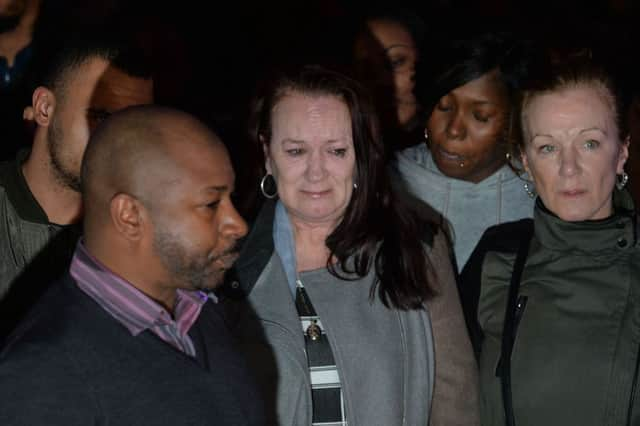Leaders: Duggan verdict must not ignite violence


Exactly how this incident became a flashpoint for disturbances in a number of English cities is not fully understood, even now, two and half years later. But the killing of Mr Duggan has become a cause célèbre for sections of the public, particularly in north London and other inner city areas, that have lost confidence in the police.
Now an inquest jury has, by a majority verdict, declared that Mr Duggan’s death was not an unlawful killing. Angry reactions to the news inside and outside the Royal Courts of Justice yesterday afternoon were a clear sign that for some people this verdict is a symptom of a system stacked against justice for black people.
Advertisement
Hide AdAdvertisement
Hide AdBut the process that cleared police of wrongdoing yesterday was a meticulous one. It was structured in a way that presented the jury with a series of specific questions about what happened that summer’s night. This was done in order to provide clearly defined building blocks towards an eventual verdict of lawful or unlawful killing.
It was a most sensible way to proceed, allowing for the maximum possible exposition of the jury’s decision-making process. The aim was to demonstrate that any conclusion reached was based on a rational assessment of the available evidence.
No-one can say with any credibility that this verdict was not the result of a serious and pains-taking attempt to establish the truth. This was not a case of police investigating themselves, nor the verdict of a judge – it was a jury of ordinary Londoners.
Their verdict therefore deserves to be treated with respect. It would be wrong for anyone to take yesterday’s outcome as the justification for renewed violence on the streets, or the furtherance of an anti-police agenda.
This panel of seven women and three men, when asked specific questions, gave clear answers about their view of what happened.
They expressed their belief that the police officers on the scene were right to believe they were at serious risk of coming under fire. They were satisfied that Mr Duggan had been in possession of a handgun in the taxi in which he was travelling, but that he was not holding it when he was shot by armed officers. The jury found that it was more likely than not Mr Duggan had thrown the gun from the taxi as it was being intercepted by the police.
No-one is pretending that the police in London do not have to make major efforts to improve their relationship with many black communities. They surely do. For the family of Mr Duggan it is a most difficult time, and one cannot but have sympathy for them at the loss of a beloved 29-year-old son and brother in these circumstances. But they should hope for calm and pursue their greivance through official channels.
Excuses on infections won’t wash
IF CLEANLINESS is next to godliness then we Scots must be a godless lot. New figures on the spread of C Diff in hospitals suggest that despite years of advice for patients, staff and visitors on basic hygiene, cases of this deadly infection are on the increase.
Advertisement
Hide AdAdvertisement
Hide AdThe rise, reported by Health Protection Scotland, is unexpected. For some time the incidence of Clostridium difficile has been in decline, as has that of another problem infection, MRSA.
But the most recent three-month period for which information is available has seen an alarming rise, with levels in under-65s up a worrying 35 per cent. Clinicians are not certain why this is. They suggest a number of possible contributory factors, including the inappropriate prescribing of antibiotics and poor infection management.
But for the layman the suspicion must remain that a contributory factor is people letting down their guard and not being sufficiently meticulous in their cleanliness regime, whether they be medical personnel, hospital cleaners or visitors who find it difficult to understand the words “now wash your hands”.
Whatever the problem is, it is not an isolated one. Out of Scotland’s 14 health boards, ten saw cases increase. In NHS Highland the rate more than doubled.
This should be a concern for everyone connected with the health service in Scotland. Hospitals are meant to be places that make you well, not give you potentially life-threatening infections.
Administrators, clinicians and government ministers must put their heads together and come up with a plan that will ensure this is not a reversal of advances made in recent years, but is just a blip, albeit an extraordinary one.